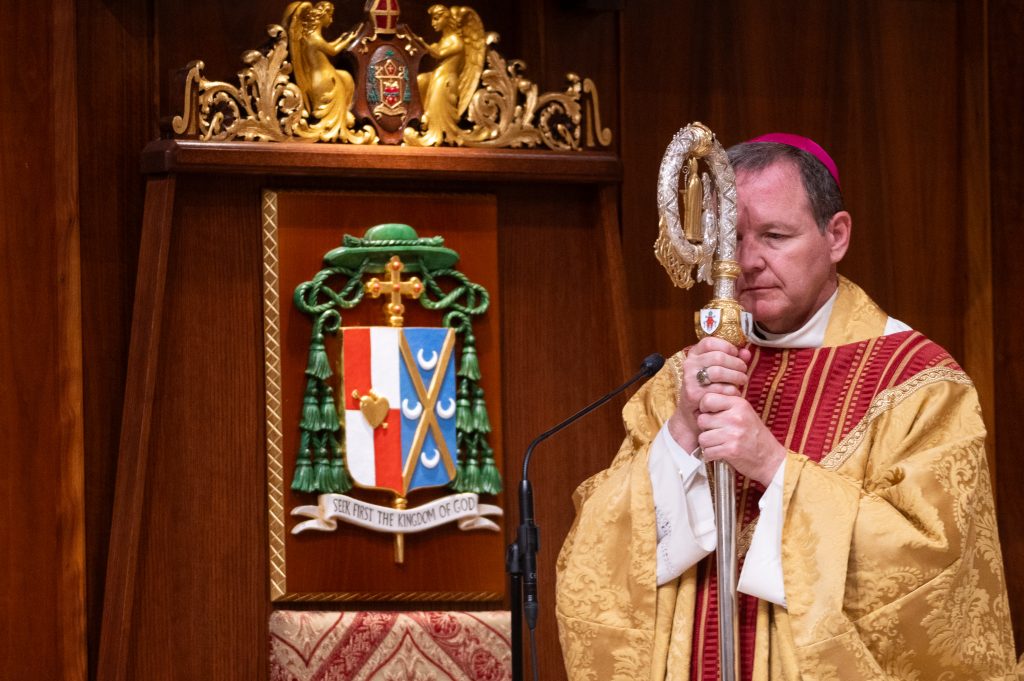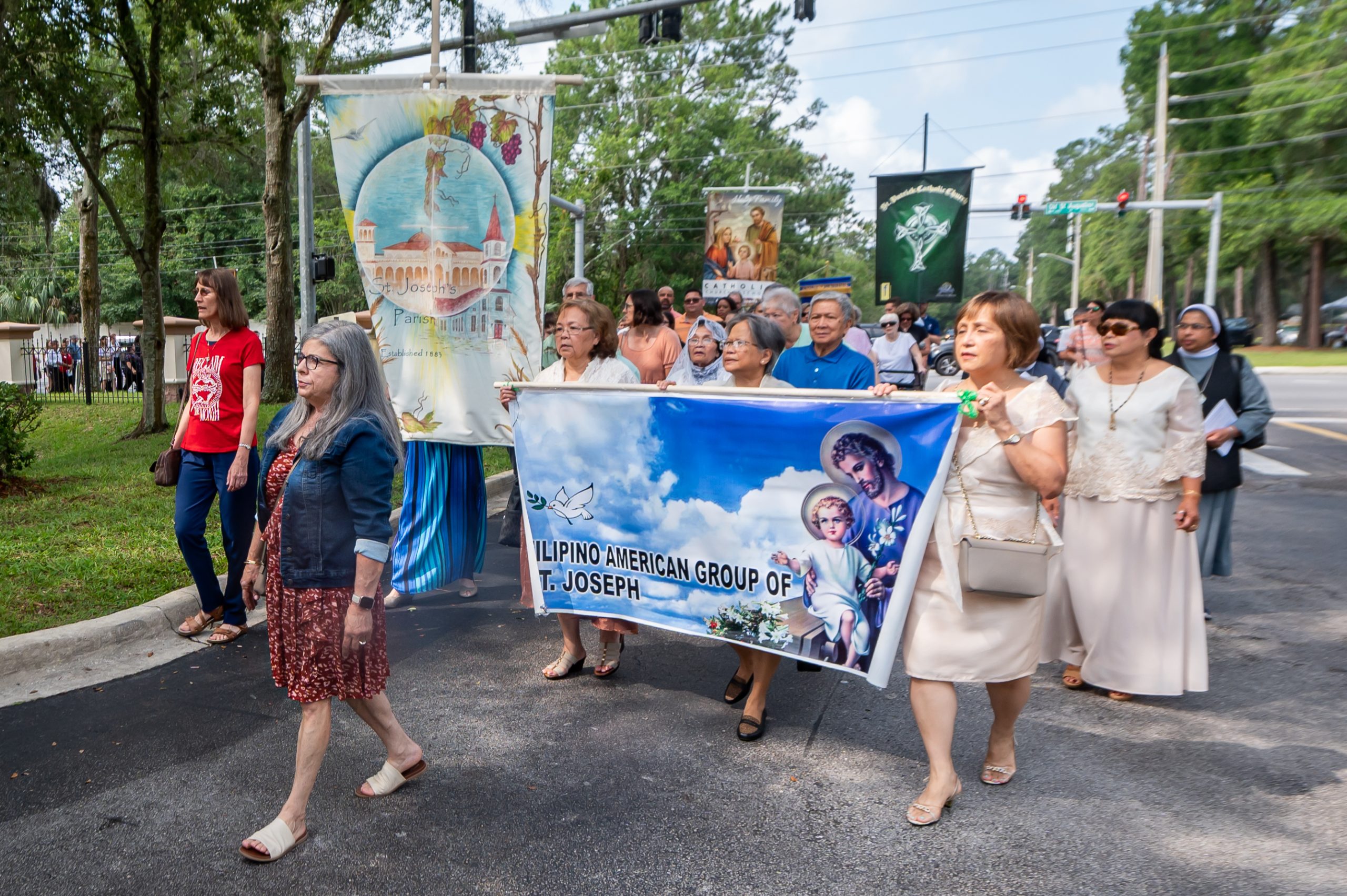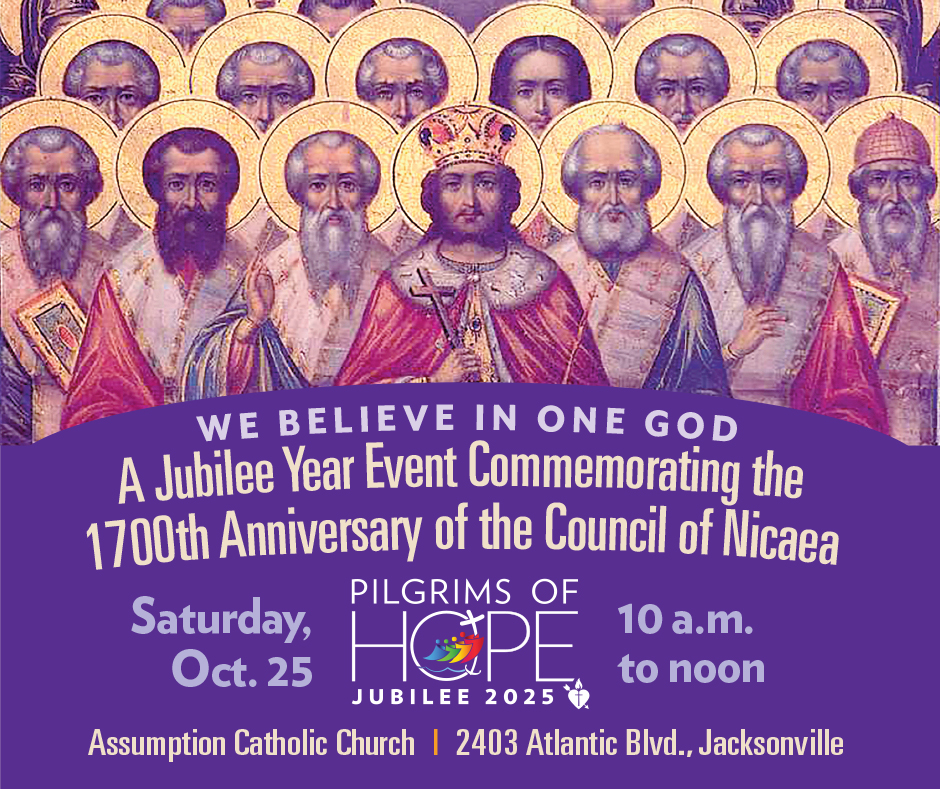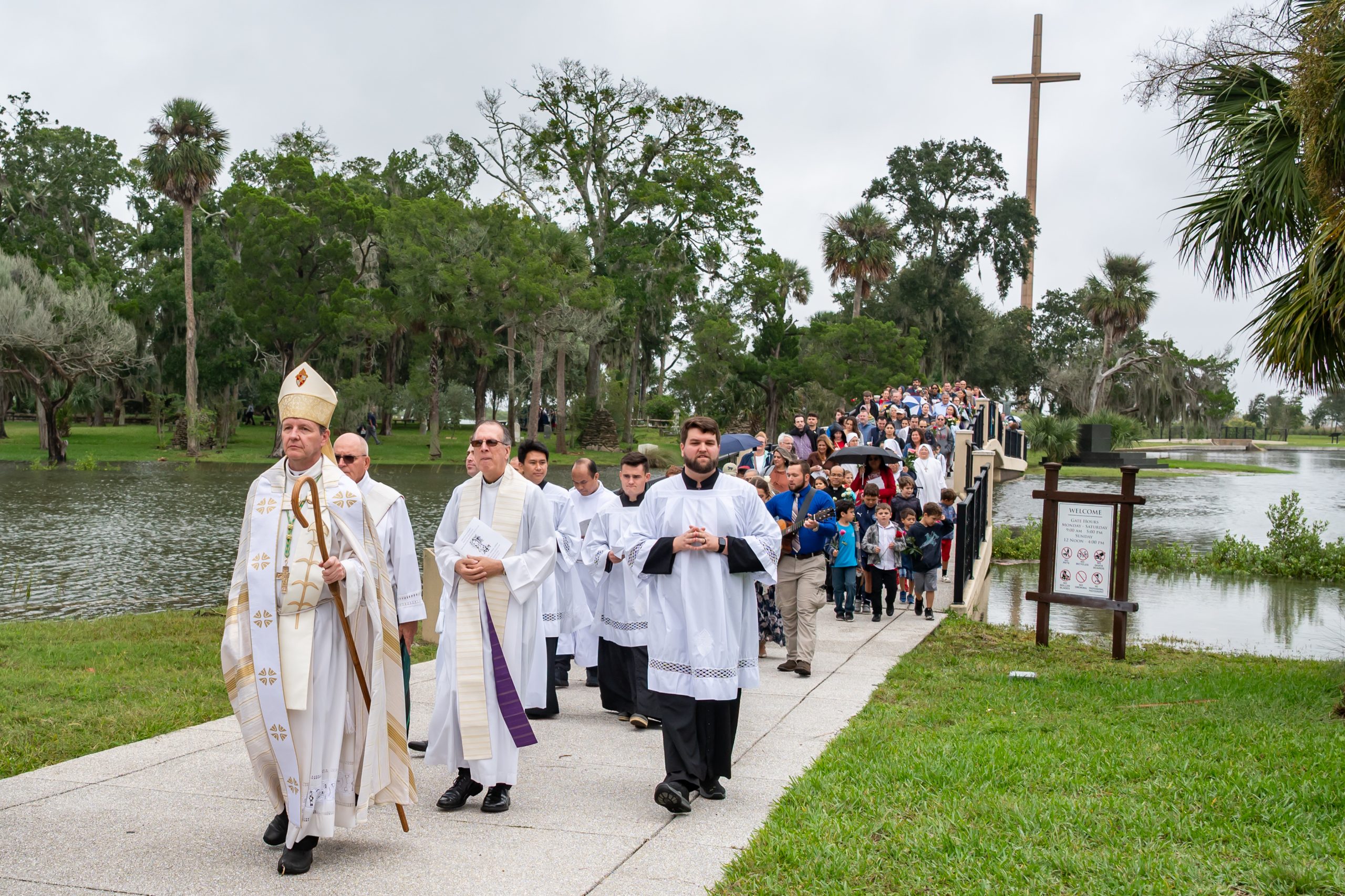A Statement on Immigration by Bishop Erik T. Pohlmeier
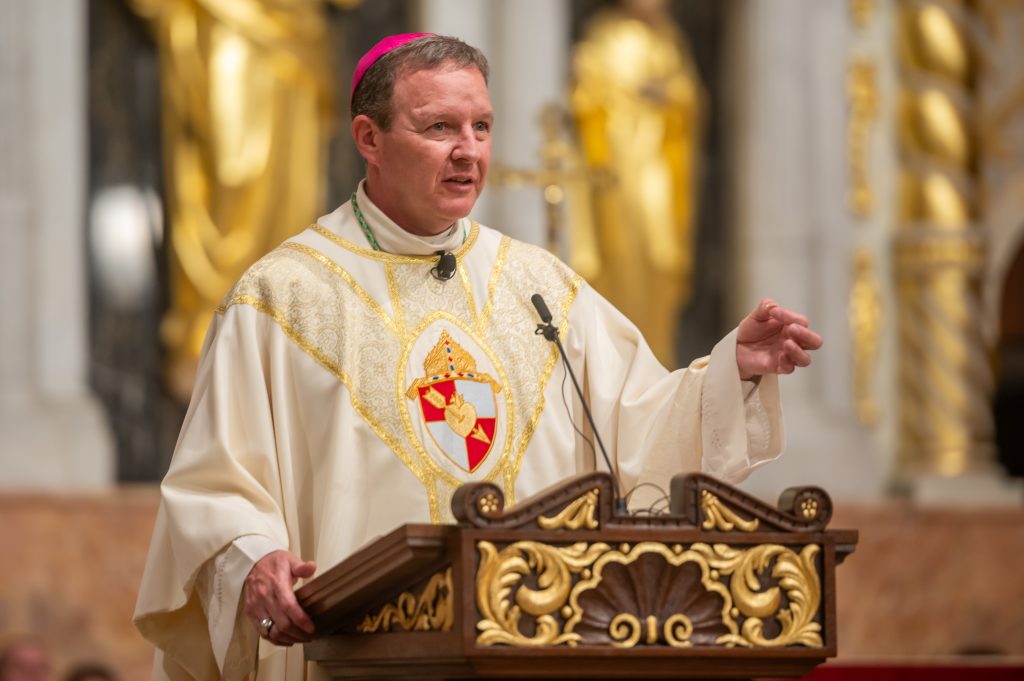
The concerns about immigration continue to captivate our country. Every day provides more news and stronger opinions. It is tempting to scan headlines and comments to find those who agree with our side. I am writing now to ask that we step back and look again.
I released a statement in February that suggests ways to look at policy affecting immigration. Since then, the issue has only intensified. I feel compelled to speak again because I find that many Catholics respond to their bishops along political party lines rather than from the heart of the Gospel.
The political reality of immigration is a serious issue. Bishops who speak out rightly highlight the need to protect citizens and borders, along with just laws for those seeking to migrate. But I write now to call on Catholics in the Diocese of St. Augustine to pause and examine this issue through the lens of the Gospel.
Jesus speaks clearly about caring for our neighbor and welcoming the stranger. As followers of Christ, we cannot set these truths aside when considering policies that shape modern society.
The Catechism of the Catholic Church, (paragraph 1902), quotes St. Thomas Aquinas: “A human law has the character of law to the extent that it accords with right reason, and thus derives from eternal law.” Eternal law requires a hierarchy of truths to properly guide the laws that govern our world. I ask each person of faith to reflect on those foundational truths before forming opinions about immigration.
Decisions about detention centers and immigration policy must begin with an understanding of human dignity and compassion. Jesus identifies himself with the prisoner and demands that his followers practice a higher standard of charity—one that surpasses politics.
Each of us must look in the mirror and ask whether our standard for compassion reflects the Gospel, which is built on Christ laying down his life for every sinner. Even when laws must be enforced, charity must not be abandoned. If our compassion falters, we fall short of the Gospel.
If our first question about an immigrant is, “Do they have legal papers?” we are failing to see the face of Christ. In every person, we must begin with the recognition that they are made in the image and likeness of God. This is the foundation of human dignity, which is never lost—not even by those who reject that image in themselves. Only with this foundation can we shape laws that reflect God’s eternal law.
When our hearts are rooted in Christ’s love and our foundational truths are grounded, we can then assess what just laws should look like. Yes, nations have a right and duty to protect their borders and address violence and conflict. But those laws always impact people, and that demands an understanding of human dignity. Catholic teaching is clear: human dignity is not lost, even in sin. Every person deserves compassion, and special attention must be given to the poor and vulnerable.
Striking this balance has always been difficult. In today’s world, we must look beyond party lines and fix our eyes on Jesus, the source of all truth. He died even for those who took his life. That standard of sacrificial love is the great challenge of our faith.
We must apply this standard to immigration. The temptation is to begin by justifying stronger efforts to remove those who entered this country illegally. But that cannot be the starting point for Christians. Jesus commands us to see the person first, and then consider laws that allow the person to thrive. There is a line between removing those who intend harm and those who seek a better life. We must find that line—for the good of society and in faithfulness to the Gospel. This does not mean open borders, but it does mean laws that reflect the dignity of every person.
Some of those seeking a better life are already in our pews. They are part of our Church in the Diocese of St. Augustine. They are our brothers and sisters. I urge every Catholic in our diocese to look beyond the issue of border protection. Upholding Christian values means examining all social challenges in light of the Gospel.
Jesus calls us to sacrificial love—the kind he practiced on the cross. That is the highest value. And in a broken world, we are called to be its light.
Most Rev. Erik T. Pohlmeier
Bishop of St. Augustine
August 4, 2025
Lea la declaración completa en español
